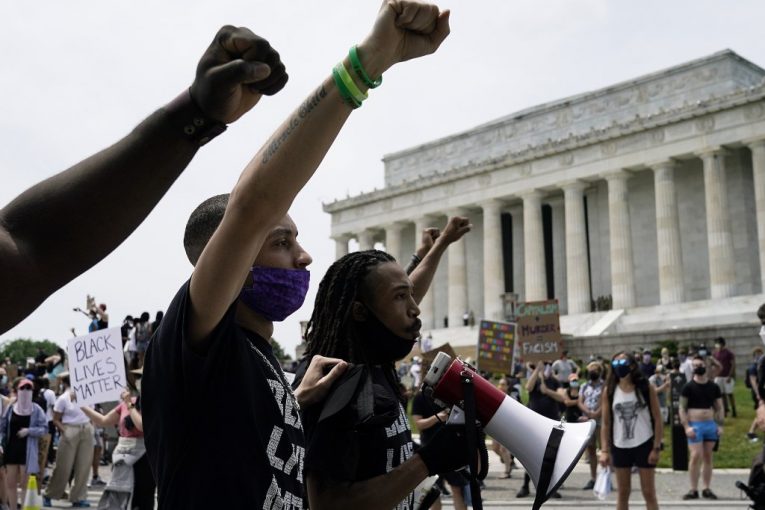

By Amy Fullerton and Catherine Hamilton
NEW YORK CITY, NY –Educational gag orders, or deliberate attempts through policy and bills to prohibit the teaching of certain topics, are becoming more prevalent in today’s increasingly polarized society, according to PEN America, a nonprofit literature and human rights organization based in New York City.
Read the full report here: https://pen.org/report/educational-gag-orders/
These educational gag orders target education geared towards teaching about and discussing issues of race, racism, gender, and American history, reports PEN America, noting that educational gag orders have had far reaching tendencies, affecting everyone from grade school to college-level adults.
These bills appear designed to chill academic and educational discussions and impose government dictates on teaching and learning. In short: They are educational gag orders,” said the author of PEN America report.
Opponents of these “gag orders” argue that the enacted educational gag orders directly go against the doctrine of the First Amendment, a clear violation of the First Amendment protection of free speech and prevent academic freedom by creating subjective boundaries infringes on the freedoms guaranteed to Americans.
Not only are educational gag orders affecting the First Amendment rights of all students and educators in America, but PEN America also found that education gag orders are also disproportionately affecting women, people of color, and the LGBTQ+ because of the educational topics they seek to repress.
The PEN reports noted that these bills followed the 2020 protests in the wake of George Floyd’s murder, where Americans, especially white Americans, were  beginning to come to terms with the country’s racial history.
beginning to come to terms with the country’s racial history.
Some of the bill frameworks directly target a law-school level teaching of Critical Race Theory, claiming that it encourages white students to feel like they are inherently bad people for being white, even though that is not what the theory says.
Educational gag orders will affect generations of children to come, distorting the lens of American history and society, said PEN American, explaining that in addition to distorting the lens of American history and society, educational gag orders will harm the consistent worldview the U.S. is a free and liberal state when compared to censored and authoritarian regimes.
Between January and September 2021, PEN America identified 54 bills that were considered educational gag orders. These 54 introduced or pre-filed bills were wide-sweeping, present in 24 states. As of November 2021, 11 of these bills have become law.
One example of the gag order bills include 11 bills spread across the 24 states that prohibited schools from using The New York Times’ 1619 Project, which features and examines the modern impact slavery has had in the U.S.
As found by PEN America, violations of educational gag orders sometimes carry heavy punishments, deterring any educator or student who wants to teach about decisive issues.
Heavy punishments that are carried out if the law is broken range anywhere from firing teachers to forcing school districts to go through pricy litigation, according to PEN America.
Even if these laws are struck down by courts, it would likely take a significant amount of time wherein the damage to the educational system would have already been done, suggest opponents.
As Emerson Sykes, an ACLU senior staff attorney, says, “The courts alone will not save us. This is really a social and political issue.”
As American institutions have increasingly been incorporating anti-discrimination training and programs in their communities, some critiques suggest the programs enforce one narrative of history that cannot be challenged without making that person seem insensitive or worse.
However, PEN America reports that these nuanced concerns are often at odds with political motivations: many Republican lawmakers trying to prevent this indoctrination are threatening the academic and free speech freedoms of the U.S. population.
Many of the proposed bills draw directly from former President Trump’s Executive Order on Combating Race and Sex Stereotypes in Sept. 2020.
The order prohibited including “divisive teachings” on race and sex from federal employee and military training, as well as institutions with contracts with the federal government — which could be interpreted as including state universities.
Even though President Biden repealed the order on his first day in office, the effect appears to have already manifested in legislation currently being proposed by lawmakers.
PEN America stated that the bills are so concerning for a number of reasons. Firstly, they show an attempt to censor content and viewpoints in academia, which can prevent the full history of the U.S. from being taught.
Secondly, said PEN, the bills plan to limit the freedom of speech for educators and trainers in that worrying side effects — such as being fired or losing school funding — may make educators stray away from teaching on “divisive” subjects.
Thirdly, the bills are based, according to the PEN America report, on a misunderstanding and misrepresentation of intellectual frameworks, specifically in regards to critical race theory, which would limit the range in which educators can discuss race, diversity, and U.S. history.
Finally, while many of the bills are represented as protecting free speech, they are in fact doing the opposite and limiting narratives on certain controversial topics because of political ideologies.
Ultimately, these bills show the trend of lawmakers attempting to silence those who disagree with them, turning educational systems into a political issue, according to PEN America, adding that if the trend of these bills is not slowed or stopped, it is likely the framework of freedom of speech in America will be weakened.


I find this all so hypocritical when students will often drown out or block speakers on campus that they don’t agree with. You can’t have it both ways.
Teachers, like every other employee – don’t have a right to “free speech” at their workplaces.
Quite often, employees don’t even have a right to free speech when not at work, if they want to keep their jobs. Many examples of that.
This can also apply to owners of franchises, as well (see “Mr. Pickles”).